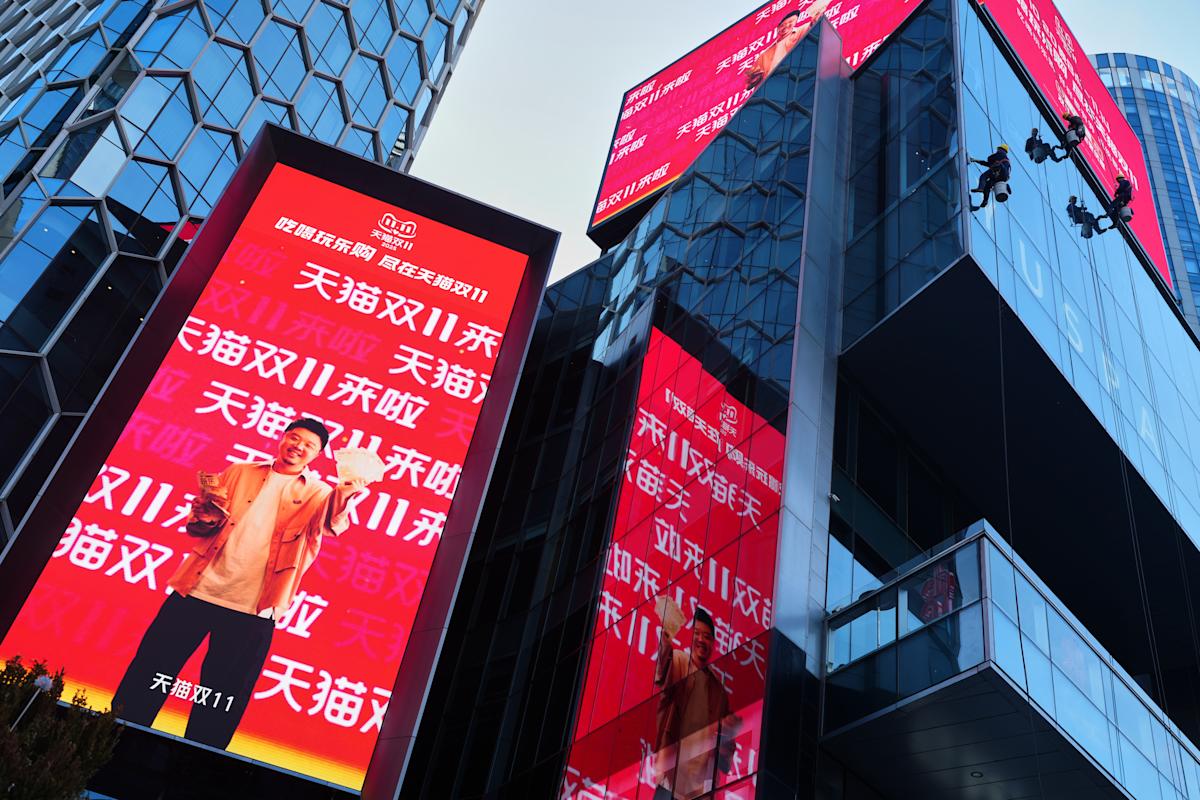China’s ‘Singles’ Day’ shopping festival a gauge of Beijing’s effort to get consumers to spend more
HONG KONG (AP) — Alice Zhang, a 29-year-old marketer in the southern Chinese city of Guangzhou, has spent only roughly half what she did last year during the “Singles’ Day” online shopping festival, switching to cheaper choices and giving up on buying new shoes after pay was cut by more than 20%.
That’s typical, analysts say, of the trend for the extended discount campaign that is China’s equivalent to Black Friday sales, initiated by China’s Alibaba in 2009 as a 1-day event on Nov. 11 — Double 11 in Chinese parlance, and considered a symbol of unattached singles.
“I’ve made a conscious effort to cut back,” said Zhang, who spent around 3,000 yuan ($421) this year.
Singles’ Day spending is closely watched by observers and economists as an indicator for the wider economy. This year, the sales period began as early as Oct. 9, several days earlier than in 2024, and will finish this week.
Chinese retail data provider Syntun said that as of Oct. 31, the combined gross value for this year’s Singles’ Day had topped 1 trillion yuan ($140 billion). In 2024, it estimated sales rose about 26% year-on-year to 1.44 trillion yuan.
It remains to be seen if the appetite for spending may finally be recovering after the pandemic and a prolonged downturn in the property market.
Boosting domestic demand such as consumer spending and business investment is a top priority for the ruling Communist Party.
Economists and analysts say spending on big ticket items remains downbeat as value-minded shoppers focus on necessities and more affordable goods.
“Confidence remains quite downbeat among households,” said Lynn Song, chief economist for Greater China at ING Bank.
The early launch for this year’s festival partly reflects the desire of the online retailers that are its main organizers to compensate for weakness in the consumer economy, said Shaun Rein, managing director at China Market Research Group.
“It’s an attempt by (major Chinese e-commerce) players like Alibaba and JD.com to drum up business,” he said. “But it’s not going to be easy.”
“A lot of people have been complaining that the discounts (this year) are not very strong,” said Yaling Jiang, an independent Chinese consumer analyst, adding that she observed a stronger sense of “consumer fatigue.”
Many Chinese consumers are hesitant to spend big.
“Apart from daily necessities, I don’t need to buy any big items,” said Zhang Shijun, a 45-year-old Beijing-based staffer at a vocational training institution. “I (do) still need to buy some clothes for my family, because winter is coming.”



Leave a Comment
Your email address will not be published. Required fields are marked *